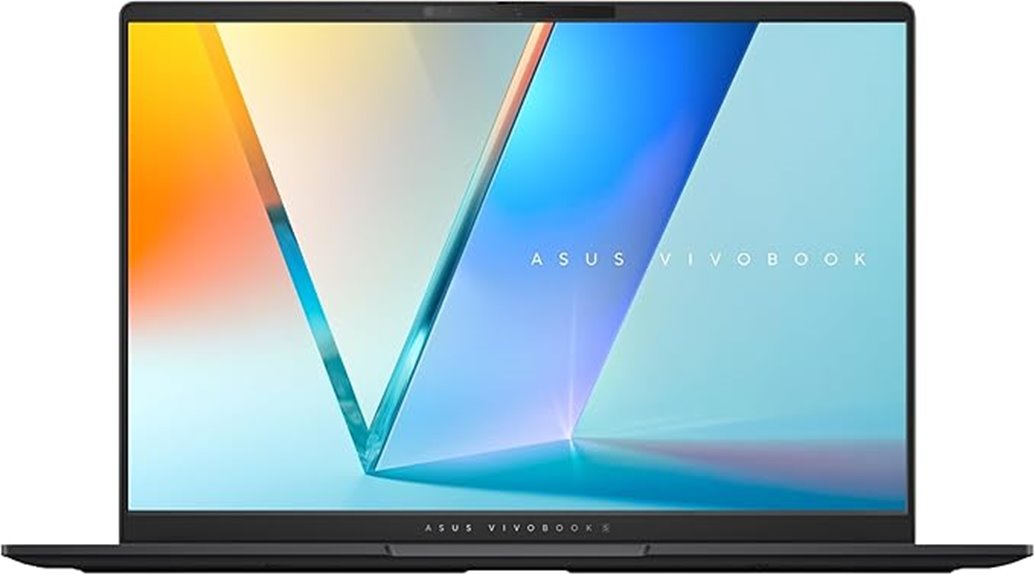Best Laptop for Data Scientist (Top 5 Picks for 2025)
If you’re a data scientist in 2025, you need a laptop that balances performance and portability. Consider the Apple 2024 MacBook Pro with the M4 chip for its speed and display. The Acer Swift X 14 offers powerful graphics, while the Apple 2025 MacBook Air boasts amazing battery life. Don’t overlook the ASUS Vivobook for its lightweight design or the Samsung Galaxy Book4 Pro for its ample storage. Keep going to discover all the essential features to look for!
In the interest of full disclosure, we would like to inform you that some links on our website are affiliate links. By clicking on these links and completing a purchase from our partners, we may receive a nominal commission at no extra cost to you. Rest assured, our affiliate partnerships do not compromise the integrity of our editorial content or product evaluations. For further clarification, kindly refer to our comprehensive affiliate disclosure.
Table of Contents
What Are the Best Laptop for Data Scientist to Buy This Year?
Here are my top picks for the best laptop for data scientist, you can consider this year.
Apple MacBook Pro Laptop with M4 Chip (14.2-inch, Space Black)
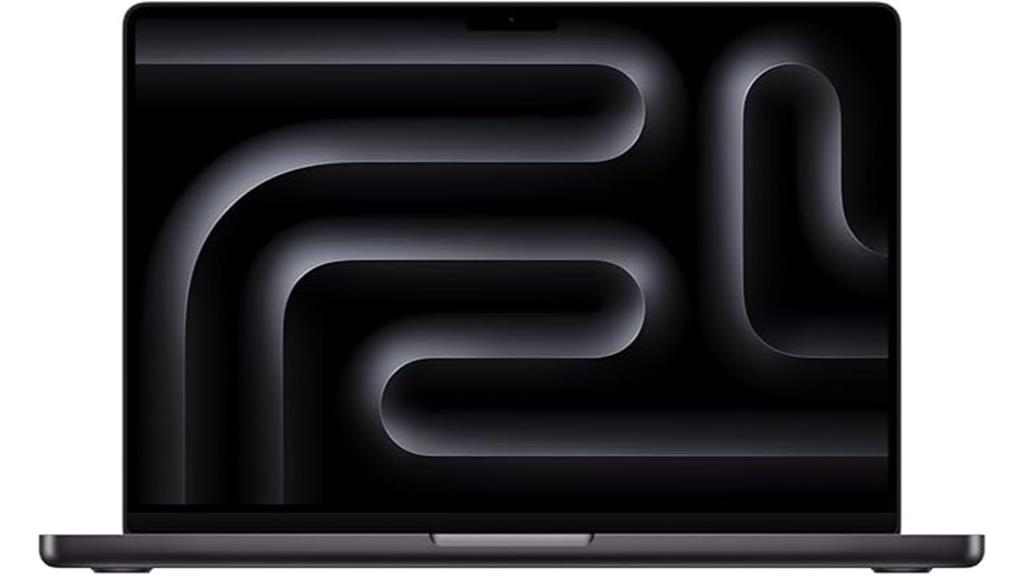
The Apple 2024 MacBook Pro with the M4 chip is a powerhouse tailored for data scientists who need to juggle complex tasks effortlessly. With its 10-core CPU and GPU, you’ll experience exceptional speed for multitasking and running productivity apps. The 14.2-inch Liquid Retina XDR display, boasting 1600 nits peak brightness and a stunning contrast ratio, ensures your data visualizations look incredible. Plus, with 16GB of unified memory and 512GB of SSD storage, you’ve got all the space and speed you need. Enjoy all-day battery life and seamless integration with the Apple ecosystem for an unmatched user experience.
Best For: Data scientists and professionals who require high performance for multitasking and data visualization tasks.
Pros:
- Exceptional speed with the M4 chip’s 10-core CPU and GPU for efficient multitasking.
- Stunning visuals on the 14.2-inch Liquid Retina XDR display with high brightness and contrast.
- Seamless integration with the Apple ecosystem, enhancing productivity and user experience.
Cons:
- Limited upgrade options for internal components due to Apple’s design choices.
- Higher price point compared to some competing laptops with similar specifications.
- Potential compatibility issues with non-Apple software or peripherals.
Acer Swift X 14 Laptop (SFX14-72G-77NJ)
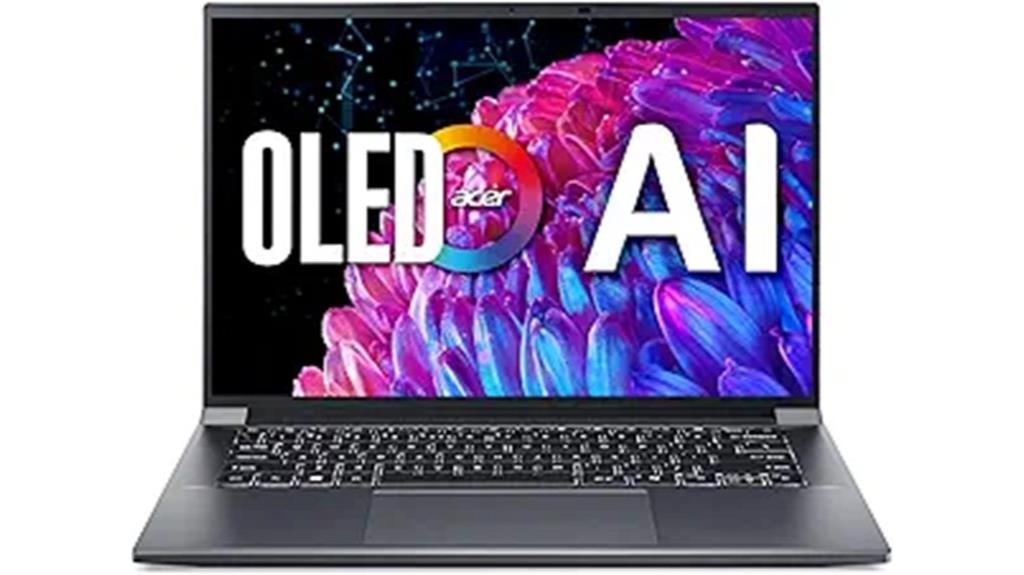
For data scientists seeking a powerful and efficient machine, the Acer Swift X 14 (SFX14-72G-77NJ) stands out with its Intel Core Ultra 7 processor and NVIDIA GeForce RTX 4060 GPU. You’ll appreciate the 14.5-inch OLED display, featuring a sharp 2880 x 1800 resolution and a 120Hz refresh rate. With 16GB LPDDR5X memory and a 1TB PCIe Gen 4 SSD, multitasking becomes seamless. Plus, the centralized AI assistance enhances your productivity. The 1080p FHD webcam and advanced collaboration tools ensure crystal-clear video calls, while Killer Wi-Fi 6E keeps you connected effortlessly, making this laptop ideal for your data science needs.
Best For: Data scientists and creative professionals seeking a powerful, efficient laptop with advanced AI capabilities and high-quality display.
Pros:
- High-performance with Intel Core Ultra 7 and NVIDIA GeForce RTX 4060, ideal for demanding software and AI applications.
- Stunning display featuring a 14.5-inch OLED screen with 2880 x 1800 resolution and 120Hz refresh rate, ensuring vibrant visuals.
- Robust connectivity options with Killer Wi-Fi 6E and Bluetooth 5.3, providing stable and fast internet access.
Cons:
- Limited upgradeability due to soldered RAM, which may restrict future memory upgrades.
- Potentially high price point compared to other laptops with similar specs, which may not fit all budgets.
- Weight and portability may be less advantageous for users seeking ultra-lightweight options for travel.
Apple 2025 MacBook Air 15-inch Laptop with M4 chip
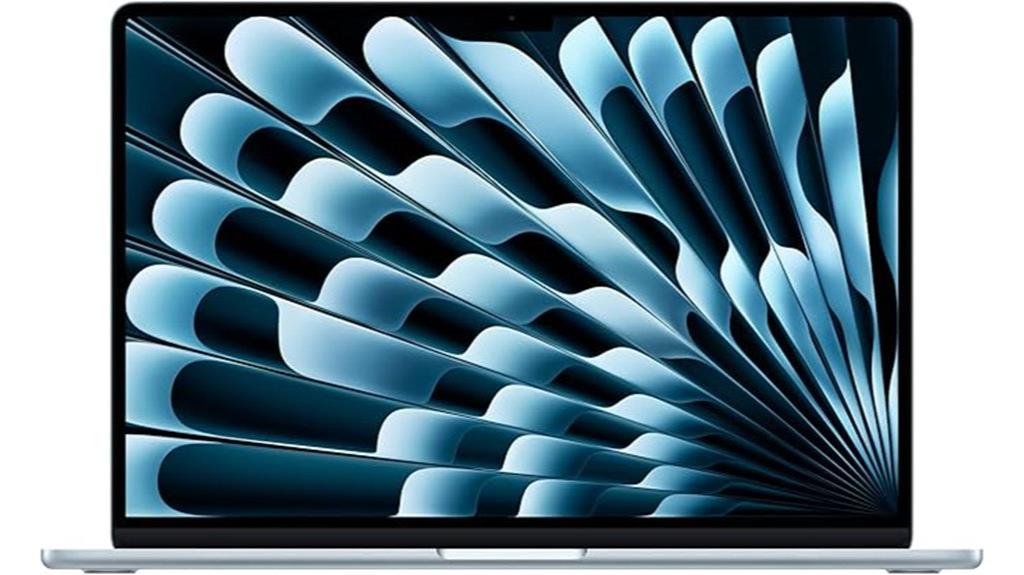
Designed with the data scientist in mind, the Apple 2025 MacBook Air 15-inch Laptop boasts the powerful M4 chip, ensuring exceptional performance for tasks like data analysis and model training. With up to 18 hours of battery life, you can work seamlessly, whether on the go or plugged in. The 15.3-inch Liquid Retina display brings your data to life with 1 billion colors, offering sharp details. Plus, the 12MP Center Stage camera and six speakers with Spatial Audio elevate your virtual meetings. Connectivity options, including Thunderbolt 4 ports and Wi-Fi 6E, keep you linked to your essential tools effortlessly.
Best For: Data scientists and professionals seeking a powerful, portable laptop for data analysis and multitasking.
Pros:
- Exceptional Performance: The M4 chip provides fast processing for data-intensive tasks like analysis and model training.
- Long Battery Life: With up to 18 hours of battery life, users can work for extended periods without needing to recharge.
- High-Quality Display and Audio: The 15.3-inch Liquid Retina display and advanced audio system enhance the visual and auditory experience during presentations and virtual meetings.
Cons:
- Price Point: The MacBook Air 15-inch may be more expensive compared to other laptops with similar specifications.
- Limited Upgrade Options: The laptop may have restricted hardware upgrade capabilities post-purchase.
- Fewer Ports: While it has essential connectivity options, the number of ports may be limited for users needing extensive connections.
ASUS Vivobook S 14 OLED Slim Laptop (M5406WA-DS76)
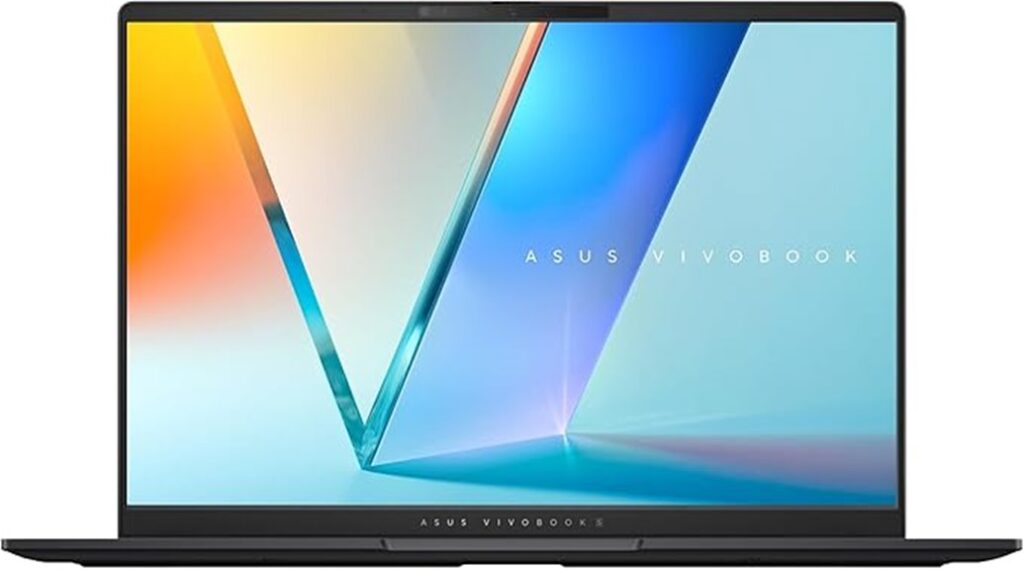
With its powerful AMD Ryzen 9 365 processor and 24GB of LPDDR5X RAM, the ASUS Vivobook S 14 OLED Slim Laptop (M5406WA-DS76) is a top choice for data scientists who need to handle demanding computations and large datasets. The stunning 14” 3K OLED display offers vibrant colors and sharp details, perfect for visualizing data. Weighing just 2.87 lbs and measuring 0.63” thick, it’s incredibly portable. The customizable RGB backlit keyboard enhances your ergonomic typing experience, while ample connectivity options ensure you can easily connect peripherals. With a 512GB SSD, you’ll enjoy fast data access and storage efficiency.
Best For: Data scientists and professionals who require high-performance computing and excellent display quality for data visualization.
Pros:
- Powerful AMD Ryzen 9 365 processor offers exceptional multitasking and processing capabilities.
- Stunning 14” 3K OLED display provides vibrant colors and sharp details, enhancing visual experiences.
- Lightweight and slim design makes it highly portable for on-the-go professionals.
Cons:
- Limited storage capacity of 512GB may require external solutions for extensive data storage.
- Higher price point compared to other laptops in its class may not suit all budgets.
- RGB backlit keyboard may not appeal to users who prefer a more minimalist aesthetic.
Samsung Galaxy Book4 Pro Business Laptop (NP944XGK-KG4US)
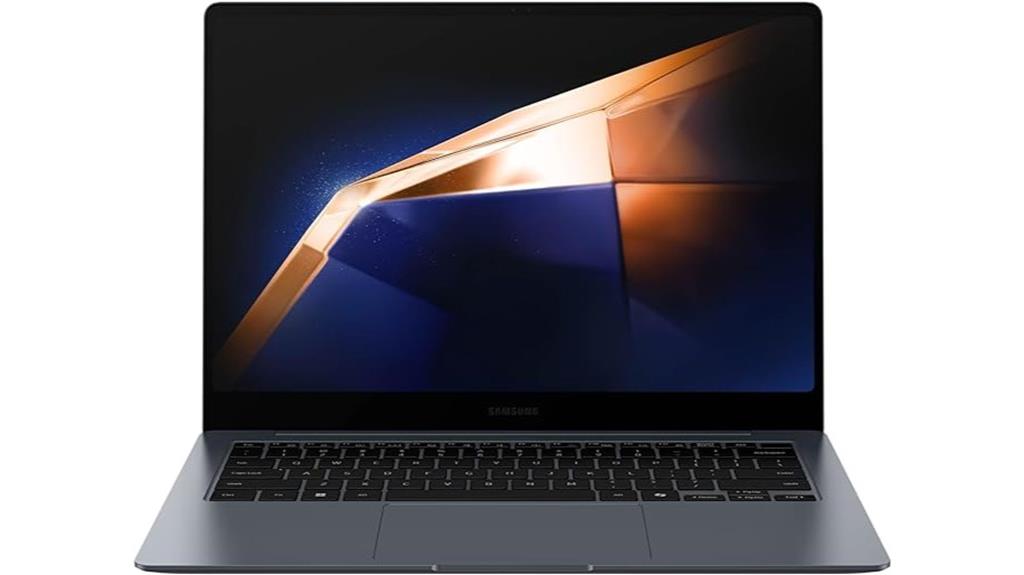
The Samsung Galaxy Book4 Pro Business Laptop (NP944XGK-KG4US) stands out for its powerful Intel Core Ultra 7 processor, making it an excellent choice for data scientists who need robust performance for multitasking and data-intensive tasks. With 32GB of RAM and a 1TB SSD, you’ll have ample memory and storage for large datasets. The stunning 14-inch 3K AMOLED touchscreen enhances your experience with vibrant visuals. Weighing just 2.71 lbs, it’s highly portable for professionals on the go. Although its price may be steep, its sleek design and security features, like Samsung Knox, offer value that’s hard to overlook.
Best For: The Samsung Galaxy Book4 Pro is best for professionals and data scientists requiring high performance, portability, and advanced security features.
Pros:
- Exceptional performance with Intel Core Ultra 7 processor and 32GB RAM ideal for multitasking and data-intensive tasks.
- Stunning 14-inch 3K AMOLED touchscreen delivers vibrant visuals and enhances user experience.
- Lightweight design (2.71 lbs) and robust security features like Samsung Knox make it suitable for professionals on the go.
Cons:
- High retail price ($1749) compared to competitors offering similar specs at lower prices.
- Limited RAM upgrade options in the US, Canada, and UK, capped at 16GB.
- The OEM SSD from Western Digital may be perceived as low quality given the premium pricing.
ALSO READ: Best Laptops for Trading Forex, Best Laptops for Bookkeeping, Best Laptop for Healthcare Professionals, Best Laptop for Transcription, Best Laptop for Instructional Design, Best Laptop for Physicians, Best Laptop for Sublimation Printing, Best Laptop for Notary Signing Agents, Best Laptop for Teletherapy, Best Laptops for Interior Design Students
Factors to Consider When Choosing the Best Laptop for Data Scientist
When choosing a laptop as a data scientist, you’ll want to focus on several key factors. Performance and processing power are crucial for handling large datasets, while display quality impacts how you visualize your work. Don’t forget to consider battery life, memory, and connectivity options to ensure your laptop meets all your needs.
Performance and Processing Power
Choosing the right laptop for data science hinges on performance and processing power. Prioritize models with powerful multi-core processors like the Intel Core Ultra or AMD Ryzen. These can efficiently handle complex computations and large datasets. A dedicated GPU, such as NVIDIA’s RTX series, is crucial for graphically intensive tasks like machine learning and data visualization, especially with AI frameworks. Aim for at least 16GB of RAM to facilitate multitasking and manage larger datasets smoothly. Additionally, opt for solid-state drives (SSD) with a minimum capacity of 512GB, ensuring fast data access and improved responsiveness. Lastly, ensure your laptop is compatible with essential data science software and tools by selecting an operating system that supports popular programming languages like Python and R.
Display Quality and Size
Display quality and size play a crucial role in your productivity as a data scientist. A higher resolution, like 2880 x 1800 or 3840 x 2160, gives you clearer visuals for analyzing complex data sets. Brightness levels above 600 nits enhance visibility in various lighting, so you can work comfortably outdoors or in bright offices. Opting for a 16:10 aspect ratio provides more vertical space, letting you view more data without constant scrolling. A high refresh rate of 120Hz improves the fluidity of animations in your data visualization tools, making presentations smoother. Finally, look for color accuracy validated by standards like Calman; precise visual representations are critical for informed decision-making based on your analysis.
Battery Life and Efficiency
While a high-quality display enhances your data analysis experience, battery life and efficiency are just as vital for maintaining your workflow. As a data scientist, you often tackle complex computations, so a longer battery life means fewer interruptions for charging. Look for laptops with efficient power management to extend battery longevity, especially during intense tasks like model training. Many modern options boast up to 18 hours of battery life, ideal for remote work or travel. Advanced processors with AI capabilities can optimize battery usage, enhancing performance per watt consumed. Additionally, consider the laptop’s thermal design and battery capacity, as these factors significantly impact performance efficiency during prolonged data processing tasks.
Memory and Storage Options
When diving into data science, selecting the right memory and storage options is crucial for optimizing your workflow. Aim for at least 16GB of RAM to efficiently handle large datasets and multitask across various applications. A minimum of 512GB SSD storage is recommended, but consider 1TB or more if you work with extensive datasets. Look for laptops with unified memory systems, as they enable faster data processing by allowing seamless data sharing between the CPU and GPU—essential for running complex algorithms. Don’t overlook memory speed; LPDDR5X can significantly enhance performance during data analysis. Finally, opting for laptops with expandable memory options gives you the flexibility to upgrade as your projects grow in complexity.
Connectivity and Ports
Connectivity is a key consideration for any data scientist, and having the right ports can make all the difference. Look for laptops with multiple Thunderbolt or USB-C ports to ensure fast data transfer and easy connections to external devices, which is crucial for handling large datasets. An HDMI port or similar display output is essential for connecting to external monitors, boosting your productivity during analysis and visualization tasks. A built-in microSD card reader simplifies access to data from various sources, like cameras or drones. Additionally, robust wireless options, such as Wi-Fi 6E, enhance seamless collaboration in network-intensive environments. Don’t forget USB-A ports for compatibility with a wider range of peripherals, as you’ll likely utilize various tools in your work.
Operating System Compatibility
Choosing the right laptop isn’t just about hardware; the operating system can significantly influence your workflow as a data scientist. Operating system compatibility is crucial since it affects the availability and performance of essential tools like Python and R. Each OS—Windows, macOS, and Linux—has unique advantages. For instance, Linux offers a robust command-line interface and is great for open-source tools, while Windows provides a user-friendly experience with widespread software support. You’ll also want to consider IDEs and package managers like Anaconda, as their functionality can vary by OS. Lastly, if you collaborate with others using different systems, cross-platform compatibility in data storage and version control is vital to ensure smooth teamwork.
Weight and Portability
Weight and portability are crucial factors for data scientists who frequently work on the go. A laptop weighing under 3 lbs enhances your ability to travel without sacrificing performance. Look for a slim profile, ideally around 0.5 to 0.7 inches thick, which makes it easier to slip into bags and briefcases. Durability is key, so choose a model with a sturdy build that protects internal components while remaining lightweight. Long battery life, at least 8 hours, is essential, allowing you to work without being tethered to a power outlet. Additionally, efficient cooling systems in these lightweight laptops prevent overheating during intensive data processing tasks, ensuring you can work effectively wherever you are.
AI and Machine Learning Support
When it comes to AI and machine learning support, selecting the right laptop can make a significant difference in your productivity and efficiency. Look for laptops with powerful processors like the Intel Core Ultra or AMD Ryzen, as they handle intensive computations effectively. A dedicated GPU, such as the NVIDIA GeForce series, is crucial for accelerating machine learning processes, especially with large datasets or complex models. Ensure your machine has at least 16GB of RAM for smooth multitasking. A high-resolution display enhances data visualization, making it easier to analyze results. Lastly, opt for SSD storage with high read/write speeds to reduce loading times and improve performance in data-intensive applications.
Frequently Asked Questions
What Is the Average Battery Life for These Laptops?
The average battery life for laptops typically ranges from 8 to 12 hours, depending on usage and specifications. You’ll want to consider your work habits to choose a laptop that meets your needs effectively.
Can These Laptops Run Multiple Data Analysis Software Simultaneously?
Yes, these laptops can run multiple data analysis software simultaneously. They’re equipped with powerful processors and ample RAM, allowing you to multitask efficiently without significant slowdowns, ensuring your productivity stays high while analyzing complex datasets.
What Is the Warranty Period for Each Laptop Model?
Each laptop model typically comes with a one to two-year warranty. You’ll want to check the specific details for each model, as some manufacturers offer extended warranties or additional coverage options you might find beneficial.
Are There Any Special Discounts for Students or Professionals?
Many retailers offer special discounts for students and professionals. You should check each brand’s website or contact their customer service to find specific promotions, as these can vary significantly depending on the model and timing.
How Do These Laptops Handle Large Datasets and Machine Learning Tasks?
These laptops excel at handling large datasets and machine learning tasks, thanks to powerful processors and ample RAM. You’ll notice faster data processing, smoother model training, and improved efficiency, making your work significantly easier and more productive.
My Final Opinion
In conclusion, choosing the right laptop for your data science needs can significantly enhance your productivity and efficiency. Whether you prefer the power of the Apple M4 chip or the portability of the Acer Swift X, there’s a perfect fit for you. Remember to consider factors like performance, battery life, and display quality. With the options listed here, you’re well on your way to finding a laptop that meets your data science demands while keeping you mobile.
